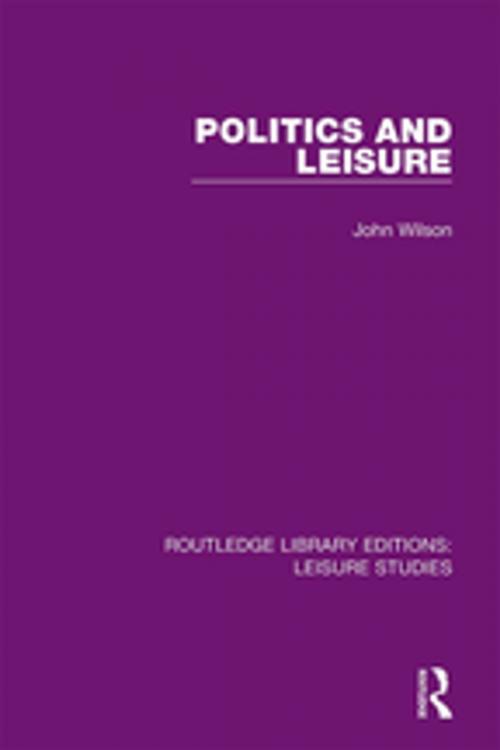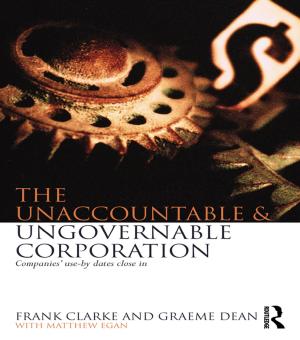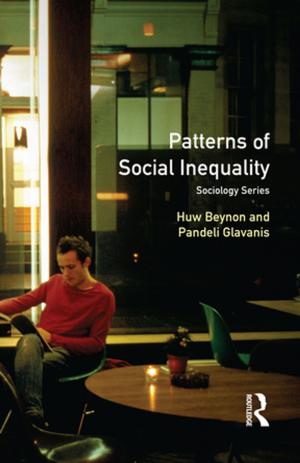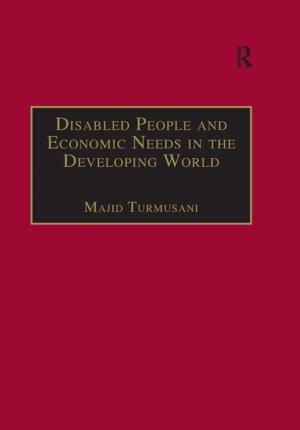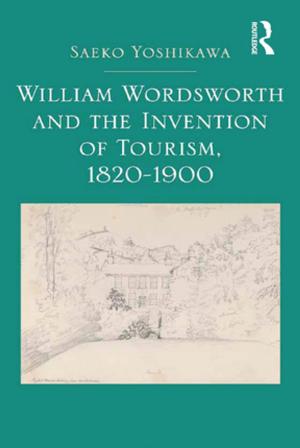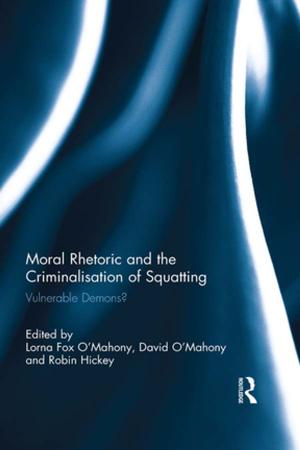| Author: | John Wilson | ISBN: | 9780429656170 |
| Publisher: | Taylor and Francis | Publication: | April 25, 2019 |
| Imprint: | Routledge | Language: | English |
| Author: | John Wilson |
| ISBN: | 9780429656170 |
| Publisher: | Taylor and Francis |
| Publication: | April 25, 2019 |
| Imprint: | Routledge |
| Language: | English |
First published in 1988. This book provides a lucid and exceptionally well-informed account at the controversial relationship between politics and leisure.
The author combines historical and sociological material to show the ways in which ‘leisure’ has often been a fiercely disputed battleground. Free time and free space have always posed a threat to political authorities, while providing room for experimentation and expression for the citizenry. This has led to extensive attempts at leisure regulation; John Wilson examines the purposes and effectiveness of such regulation in the fields of games sexuality, the mass media, and gambling. He is able to draw on evidence of leisure planning and policy from a wide variety of political regimes, from communist and socialist through social democrat to liberal, conservative, and fascist.
The importance of the relationship between political forces and leisure, in subjects as disparate as the future of the Olympic games and the future of full employment, has rarely been so evident. John Wilson has provided an excellent guide to its intricacies.
First published in 1988. This book provides a lucid and exceptionally well-informed account at the controversial relationship between politics and leisure.
The author combines historical and sociological material to show the ways in which ‘leisure’ has often been a fiercely disputed battleground. Free time and free space have always posed a threat to political authorities, while providing room for experimentation and expression for the citizenry. This has led to extensive attempts at leisure regulation; John Wilson examines the purposes and effectiveness of such regulation in the fields of games sexuality, the mass media, and gambling. He is able to draw on evidence of leisure planning and policy from a wide variety of political regimes, from communist and socialist through social democrat to liberal, conservative, and fascist.
The importance of the relationship between political forces and leisure, in subjects as disparate as the future of the Olympic games and the future of full employment, has rarely been so evident. John Wilson has provided an excellent guide to its intricacies.
